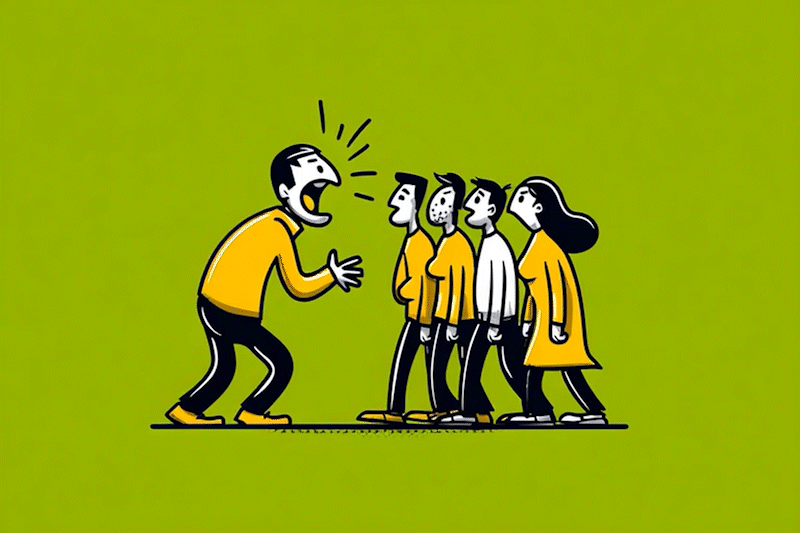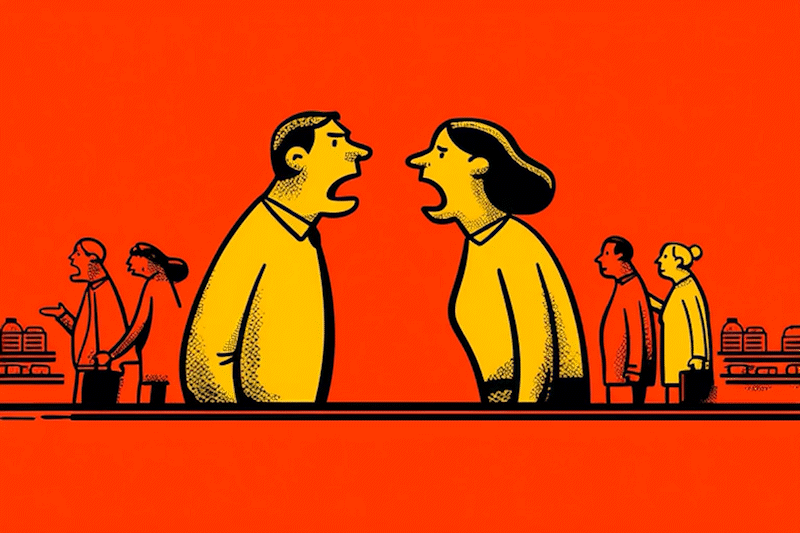Biology Doesn't Pick Sides
Health fads come and go. Entropy doesn't. A case for common ground.
Every human action stems from the same fundamental drive: we are all fighting entropy.
Whether we realize it or not, we spend our lives pushing back against our bodies' natural tendency to break down, fighting against a literal law of nature. Entropy governs everything—stars burn out in violent supernovae, ice cubes melt in glasses, batteries run down, and order inevitably gives way to chaos, as physics demands.
For our bodies, aging is entropy in action. Our cells slowly lose their battle to stay organized while our proteins fold and unfold in an endless dance against degradation. We fight this breakdown by eating to nourish ourselves, sleeping to regenerate, bonding with others for safety, and seeking medical care to repair what entropy damages.
This biological maintenance requires resources. To eat, we need money, which is why we work—contributing our energy to gain resources that let us procure the food energy we put back into our bodies to keep living.
But while we're all unified in this singular pursuit of staying alive and healthy, we remain starkly divided about how to do it. The intensity of this existential struggle has somehow convinced us that we're enemies rather than fellow travelers in the same universal fight against disorder.
The Nutrition Wars
Nowhere is this more apparent than in our battles over food. Extreme carnivores and vegans don't simply disagree about diet—they treat each other as existential threats. Keto devotees evangelize their approach as if metabolic salvation depends on it. Intermittent fasters describe their eating windows with the precision of religious ritual.
These aren't casual preferences. They're identity markers defended with shocking intensity. We argue whether grains fuel our bodies or poison them. We debate whether organic farming saves the planet or wastes resources. We form camps around supplement regimens as if choosing the wrong multivitamin might doom us to premature decay.
The underlying fear is always the same: What if I'm accelerating my own breakdown? What if my choices are making me weaker, sicker, closer to death? In a world where every meal carries potential consequences for our cellular integrity, who wouldn't grasp for certainty?
But fear makes us stupid. It transforms legitimate nutrition concerns into tribal warfare where questioning our approach feels like betraying our survival strategy. We cherry-pick confirming studies while dismissing contradictory evidence, surrounding ourselves with echo chambers that validate our choices while demonizing alternatives.
The stakes grow even higher when survival becomes profit. Some of the fiercest advocates have built their livelihoods around their chosen approach to fighting entropy. For them, promoting keto or veganism isn't just about health—it's about securing resources for their families. Commercializing a method of staying alive becomes their own method of staying alive, creating powerful incentives to defend their approach more fiercely.
When Health Becomes Identity
Last week I explored our hunger for easy answers, but that's only part of the story. The more we fragment into specialized approaches, the more we lose sight of what unites us.
Modern wellness culture feeds our tribal instincts with rigid protocols—eliminate seed oils, fast for 16 hours, take these exact supplements, follow this 30-day reset. Each approach promises to be the key that unlocks optimal health, yet our desperation for certainty makes us vulnerable to whatever sounds most compelling.
This fragmentation breeds both genuine innovation and dangerous pseudoscience. The same cultural moment that gives us breatharian cults also produces compelling research on intermittent fasting. Our openness to diverse approaches can lead us toward both life-changing discoveries and perilous rabbit holes. We must find the sweet spot of truth between extremes.
Meanwhile, biology remains frustratingly complex. The Inuit thrived on fat and protein. Mediterranean populations built health around olive oil and vegetables. Asian cultures developed longevity around rice and fish. Each represents a successful strategy against entropy, yet we keep searching for the one universal solution that doesn't exist.
Finding Our Own Way
We need plurality without gullibility. Yes, we should remain open to diverse approaches—biology is complex, and different strategies work for different people. But we also need better filters for separating genuine insights from opportunistic marketing.
This means learning to dissect arguments with logic rather than emotion. It means questioning authority when warranted without wholesale rejection of expertise. It means recognizing that the secret to health probably doesn't fit inside a tweet or tagline. It means paying closer attention to our own bodies rather than whatever nutrition trend is trending on TikTok.
The goal isn't to become cynical but to become discerning. We want strong enough convictions to avoid falling for every new fad, but flexible enough thinking to incorporate useful insights when they emerge.
The Entropy We Share
Ultimately, we're all working toward the same goal of staying healthy and vital. Instead of getting caught up in disagreements, imagine channeling that energy toward deeper understanding in good faith.
What if carnivores and vegans collaborated instead of insulting each other? What if we pooled resources to honestly identify which nutrients actually matter for longevity, instead of only advocating for the food ingredient we happen to be selling? (I'm looking at you, big pomegranate.)
The challenge of fighting entropy is substantial enough without getting distracted by unnecessary divisions. Our individual strategies may vary, but our collective knowledge grows stronger when we approach disagreements with curiosity rather than contempt.
We're demonstrably stronger together than apart—even when we disagree about protein intake or seed oils. The entropy we're working against affects us all equally. Our progress might be more effective if we remembered that simple fact.
—
Want more?
My Book - Mise: On the Future of Food
My Podcast - The Tomorrow Today Show
My Instagram - The Book of Mise








Taking the entropy argument a bit further, I think it’s important to realize that everything we eat increases universal entropy while reducing the entropy in our bodies — this is just the second law of thermodynamics. To me it’s humbling to think about it this way. Deciding to be a vegan does not somehow magically obviate the social and environmental impacts of the food you eat. Nor of course does choosing to be a carnivore for purely selfish nutritional reasons. When you realize the truth of this principle, it pushes you to think with nuance about all your food choices, and to think on many dimensions (social/economic, environmental, animal welfare, etc). It’s the only path forward out of the tribal bickering and cherry-picking of the current discourse on nutrition.
Thanks to @duckandcake Elizabeth Pizzinato for introducing us